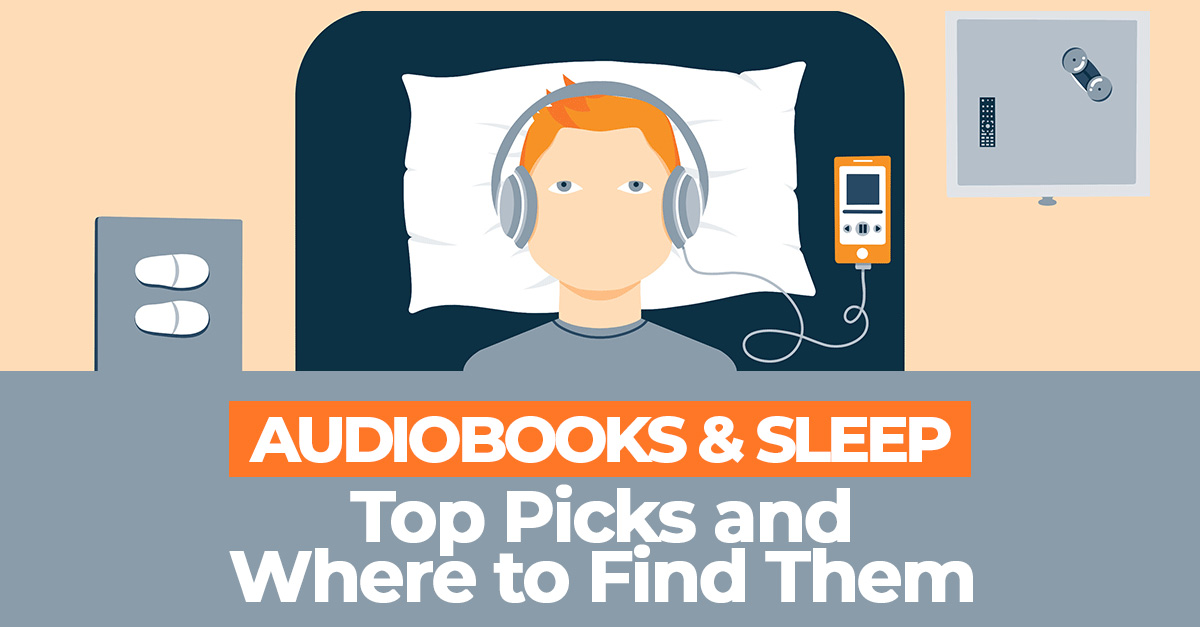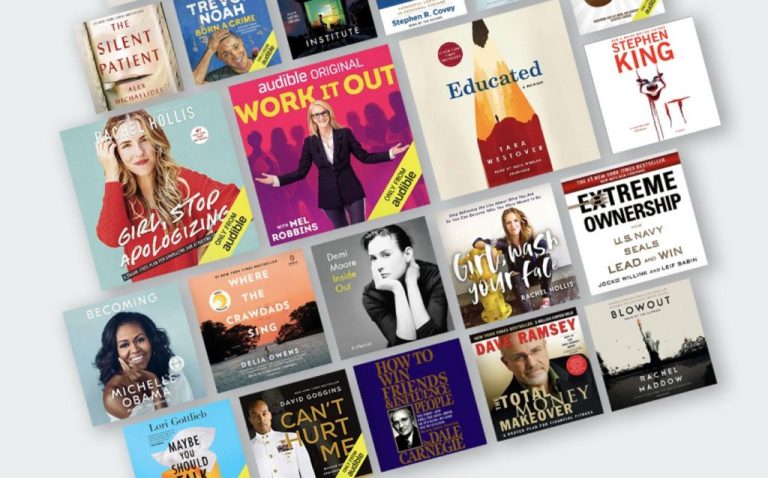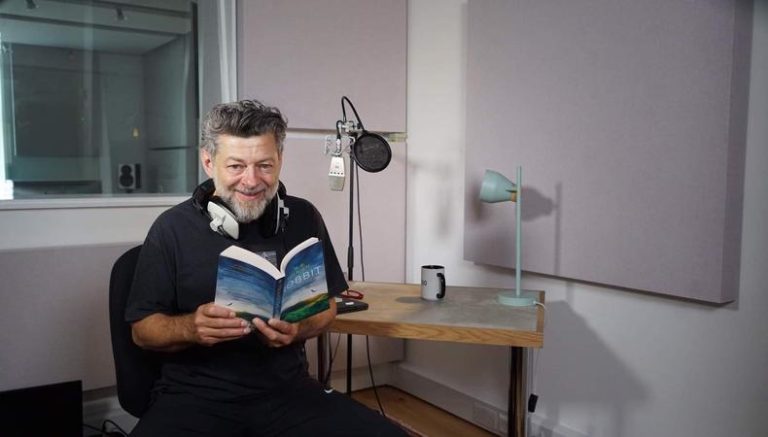Do Audiobooks Help You Sleep?
Do audiobooks help you sleep? Picture this: It’s late at night, and you’re lying in bed, struggling to find that elusive state of relaxation that will lead you into a peaceful slumber. Your mind is buzzing with thoughts, worries, and to-do lists, making it nearly impossible to unwind. But what if there was a solution? What if, instead of counting sheep, you could drift off to dreamland with the help of a captivating audiobook? In this article, we’ll explore the fascinating connection between audiobooks and sleep, and whether they are indeed a match made in bedtime heaven.
When it comes to winding down after a long day, many of us turn to various relaxation techniques. Some swear by meditation or soothing music, while others find solace in the pages of a good book. But what about audiobooks? These audio versions of our favorite novels and stories have gained immense popularity in recent years, captivating listeners with their immersive storytelling. And it’s not just about entertainment – audiobooks are increasingly being hailed as a tool for relaxation and sleep. So, do audiobooks truly have the power to lull us into a deep slumber? Let’s dive into the world of bedtime stories and explore the potential benefits they hold for our sleep quality.

Do Audiobooks Help You Sleep?
Audiobooks have become a popular form of entertainment and learning for many people. They offer a convenient way to enjoy books and stories, allowing you to listen to them while on the go or when you’re too tired to read. But can audiobooks actually help you sleep? In this article, we will explore the relationship between audiobooks and sleep, and whether or not they can be a helpful tool for improving your sleep quality.
Benefits of Audiobooks for Sleep
Listening to audiobooks before bed can have several benefits for your sleep:
1. Relaxation: Audiobooks provide a calming and soothing experience, which can help relax your mind and body before sleep. The gentle narration and the storytelling can create a peaceful atmosphere that promotes sleepiness.
2. Distraction from Worries: If you often find yourself lying awake at night with racing thoughts, audiobooks can serve as a distraction from your worries. By focusing on the story being told, you can shift your attention away from stressful thoughts and allow yourself to drift off to sleep more easily.
3. Bedtime Routine: Establishing a bedtime routine is important for signaling to your body that it’s time to sleep. Incorporating audiobooks into your routine can help create a sense of familiarity and relaxation, making it easier for you to fall asleep consistently.
Creating the Right Environment
To maximize the benefits of audiobooks for sleep, it’s important to create the right environment:
1. Choose Relaxing Narrations: Opt for audiobooks with narrators who have soothing voices. This can enhance the relaxation effect and make it easier for you to fall asleep while listening.
2. Use Sleep Timer: Many audiobook apps and devices come with a sleep timer feature. This allows you to set a specific duration for the audiobook to play, ensuring that it doesn’t continue playing throughout the night and disturb your sleep.
3. Adjust Volume and Lighting: Make sure the volume of the audiobook is at a comfortable level that won’t disturb your sleep. Additionally, dim the lights or use a sleep mask to create a dark environment that promotes melatonin production, the hormone responsible for regulating sleep.
Alternatives to Audiobooks for Sleep
While audiobooks can be helpful for some individuals, they may not be suitable for everyone. Here are some alternatives to consider:
1. White Noise: White noise machines or apps can create a consistent and soothing background sound that masks other noises and promotes relaxation.
2. Sleep Meditations: Guided sleep meditations can help calm your mind and prepare your body for sleep. They often incorporate breathing exercises and visualization techniques to induce a state of relaxation.
3. ASMR: Autonomous Sensory Meridian Response (ASMR) videos or audio recordings feature sounds that elicit a tingling sensation and promote relaxation. These can be found on various platforms, such as YouTube or specialized ASMR apps.
In conclusion, audiobooks can be a valuable tool for improving sleep quality. They offer relaxation, distraction from worries, and can be incorporated into a bedtime routine. However, it’s important to create the right environment and choose narrations that are soothing and calming. If audiobooks are not your preferred choice, alternatives like white noise, sleep meditations, and ASMR can also contribute to a restful night’s sleep. Experiment with different options to find what works best for you and enjoy the benefits of a good night’s sleep.
Key Takeaways: Do Audiobooks Help You Sleep?
- Audiobooks can be a soothing and relaxing way to help you fall asleep.
- Listening to a calm and familiar narrator can create a sense of comfort and ease.
- Choose audiobooks with gentle or ambient background music to enhance relaxation.
- Opt for books with a slower pace or calming subject matter to promote a peaceful sleep.
- Keep the volume low and use comfortable headphones to avoid disturbances while sleeping.
Frequently Asked Questions
1. Can audiobooks help improve sleep quality?
Yes, audiobooks can help improve sleep quality for many individuals. Listening to a soothing audiobook before bed can help relax the mind and create a peaceful atmosphere conducive to sleep. The gentle narration and engaging storyline can divert your attention from daily stressors and promote a sense of calmness, making it easier for you to fall asleep and stay asleep throughout the night.
However, it’s important to choose the right type of audiobook for sleep. Opt for genres such as meditation, guided relaxation, or light fiction that are known for their soothing and sleep-inducing qualities. Avoid intense thrillers or emotionally charged stories that might stimulate your mind instead of relaxing it.
2. Are there specific audiobooks recommended for better sleep?
Yes, there are specific audiobooks that are recommended for better sleep. Some popular choices include guided meditation audiobooks, nature soundscape recordings, and bedtime stories designed for adults. These types of audiobooks are crafted to create a tranquil environment and lull you into a state of relaxation, helping you fall asleep faster and experience deeper sleep.
Additionally, many audiobook platforms offer curated sleep playlists or collections specifically designed to promote relaxation and sleep. These collections often feature titles with slow-paced narratives, calming voices, and soothing background music or sounds. Exploring these curated lists can help you discover audiobooks that are known to be particularly effective in aiding sleep.
3. Can listening to audiobooks be a substitute for sleep?
No, listening to audiobooks should not be considered a substitute for sleep. While audiobooks can help you relax and unwind, they do not provide the same restorative benefits as a full night’s sleep. Sleep is essential for various bodily functions, including memory consolidation, immune system regulation, and overall physical and mental well-being.
Audiobooks can be a helpful tool to facilitate sleep, but they should not replace the recommended seven to eight hours of sleep per night. It’s important to prioritize regular, quality sleep to ensure optimal health and functioning.
4. Are there any potential drawbacks to listening to audiobooks for sleep?
While audiobooks can be beneficial for sleep, there are a few potential drawbacks to consider. Firstly, if you choose a captivating audiobook, it may be difficult to resist staying awake to continue listening. It’s important to select audiobooks that are specifically designed for sleep or relaxation to avoid this issue.
Additionally, if you rely solely on audiobooks to fall asleep, you may become dependent on them as a sleep aid. This can make it challenging to fall asleep without the audio stimulation, especially when you’re in an environment where listening to an audiobook is not feasible.
5. How can I incorporate audiobooks into my bedtime routine for better sleep?
To incorporate audiobooks into your bedtime routine for better sleep, consider creating a relaxing ritual. Set aside a specific time for winding down before bed and make it a habit to listen to an audiobook during this period. This can signal to your body and mind that it’s time to relax and prepare for sleep.
Choose an audiobook that you find soothing and enjoyable. Experiment with different genres and narrators to find what works best for you. Keep the volume at a comfortable level and consider using headphones or a sleep-friendly speaker to enhance the experience. Avoid bright screens and opt for a dedicated audiobook player or smartphone app with a sleep timer to automatically pause the playback after a certain duration, preventing disruption to your sleep cycle.
The BEST Unintentional ASMR audiobook for sleep | The Fourth Dimension read by Peter Yearsley
Final Thoughts
After exploring the question, “Do audiobooks help you sleep?” it’s clear that they can indeed be a valuable tool for improving sleep quality. Audiobooks provide a soothing and engaging alternative to traditional bedtime routines, allowing listeners to relax and unwind while immersing themselves in captivating stories. The calming effect of a well-narrated audiobook can help ease racing thoughts and create a peaceful environment conducive to sleep.
In addition to promoting relaxation, audiobooks also offer a distraction from the stresses of the day. Listening to a captivating story can transport your mind to different worlds, diverting your attention away from any anxiety or worries that may be keeping you awake. This mental escape can be especially helpful for those who struggle with racing thoughts or insomnia.
However, it’s important to note that not all audiobooks are created equal when it comes to promoting sleep. Opt for genres that are known for their calming and gentle nature, such as soothing fiction, mindfulness, or self-help books. Additionally, choose narrators with soothing voices and a pace that matches your preferences. Experiment with different genres and narrators to find what works best for you and enhances your sleep experience.
So, the next time you find yourself tossing and turning in bed, consider reaching for an audiobook instead of counting sheep. Let the power of storytelling guide you into a peaceful slumber, allowing you to wake up refreshed and ready to take on the day. Happy listening, and sweet dreams!






